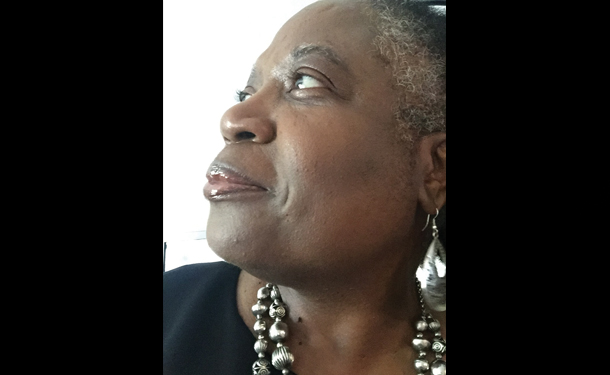“A great forum for people with radically different perspectives to have a reasonable discussion” – that’s how playwright Sheri Bailey characterizes one of her most popular plays, “Abolitionists’ Museum,” in which wax figures, including Abraham Lincoln, Harriet Tubman, Sojourner Truth and Frederick Douglass, come alive to debate the symbolism and presence of the Confederate flag.
“After one performance of ‘Abolitionists’ Museum’ a few years ago, I saw the woman who played Harriet Tubman exchanging contact information with a guy from the Sons of the Confederacy,” Bailey told a Daily Press arts reporter for an August 2015 preview article. “This seems to put people in a more relaxed frame of mind, without being hostile.”
Bailey, a Portsmouth-based writer, teacher and activist who seeks to share and broaden awareness of African-American heritage, visits Eastern Mennonite University (EMU) as part of the Writers Read series. She will speak Thursday, Nov. 5, at 6:30 p.m. in the Common Grounds coffeehouse in University Commons.
“As a Southern black woman playwright, I am compelled to help others to witness how, on the backs of daily acts of simple decency and courage, each of us can lift up those who would be burdens,” she wrote in a June 2015 guest column for PilotOnline.com.
In addition to her Writers Read appearance, Bailey will attend Professor Justin Poole’s playwriting class. Poole, who engages with social justice themes in productions staged by his own Wanderlust Theatre Company, says he’s looking forward to his students interacting with and “learning about the industry from working professionals.”
“Encountering creative people from outside the community enriches students’ educational experience,” he added. “It can motivate them to take creative risks and to keep making art.”
Bailey is committed to promoting historical understanding and healing of racial divides, says Professor Michael Medley, who met her when she attended EMU’s Summer Peacebuilding Institute in 2014 and invited her back to campus.
She is founder and executive director of the 20-year-old festival company JuneteenthVA, which seeks to “unpack the difficult, painful history” of African-American slavery “without shame or blame.” This summer, she participated in a community conference call hosted by EMU affiliate organization Coming to the Table. Carrying on her theme of seeking healing for the wounds of racism in society, she facilitated a discussion about how to commemorate the upcoming 400th anniversary of the arrival of slaves in Jamestown. She has also been an active advocate for the designation of the former Civil War Fort Monroe as a “national gathering place for our pain.”
Bailey’s dramatic works, three of which were commissioned, include “Summer in Suffolk” (2009) and “A Great and Dismal Swamp” (1999). In “Southern Girls” (1996), her most often performed work, she and co-author Dura Temple trace the lives of six women – three white and three black – from childhood through middle age in a small Alabama town. The play, according to a 1995 Los Angeles Times review, chronicles “the boomer generation’s cycle through questioned injustice, fiery idealism and eventual frustration with the reality that change can never keep pace with expectation.”
Educated at University of Pennsylvania and UCLA, Bailey has taught at University of Southern California and Old Dominion University. From 2004-2008, she served as a school board member for Portsmouth City Schools.

Lauren Jefferson, I appreciate your article. You did your research and I found out stuff about me about which I had no idea. Thanks so much.